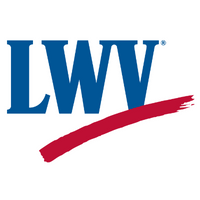Initiative and Referendum
Position in Brief
Support adoption of popular initiative and referendum in Pennsylvania, with initiative permitted for both statutes and constitutional amendments.
Background
The position was adopted in 1991 following a two-year statewide study. LWVPA publicized the new position widely and notified the legislature of its support for initiative and referendum.
LWVPA monitors and comments on relevant legislative proposals, which to date have gone nowhere in the General Assembly.
Position in Detail
The League supports the adoption of popular initiative for Pennsylvania. Citizens should be given the power to initiate statutes and constitutional amendments. The League prefers the indirect initiative process, whereby a proposal goes before the voters only if the legislature fails to act on it within a prescribed period.
LWVPA supports popular referendum, believing that Pennsylvanians should have the right to propose that a passed law be placed on the ballot for ratification or rejection by the voters. Application for a petition to repeal should be made within a limited time period, which should be no less than 30 days after the law in question has been enacted.
Legislation to provide for popular initiative and referendum should include certain requirements and safeguards.
The Initiative
LWVPA supports:
Setting a time limit for legislative action before an indirect initiative is placed on the ballot.
Limiting each proposition to one subject.
Barring propositions that would abrogate rights guaranteed by the
U.S. or Pennsylvania Constitution.
Limiting the number of measures that can appear on a ballot.
The Petition Process
LWVPA supports:
Mandatory identification of sponsors and sponsoring organizations on the petition.
A required minimum number of signatures to qualify the petition.
Imposition of a filing fee.
Giving sponsors access to help in drafting petitions, including advice on constitutionality of the proposition.
Mandating state-provided consultation on final wording of the petition, including review of constitutionality.
Limiting the time allowed for collecting signatures on a petition.
Requiring a greater number of signatures for constitutional amendments than for statutory laws.
Mandating verification of signatures by the state.
Requiring that petition circulators be registered to vote in Pennsylvania.
Setting geographical representation requirements for signatures on a petition.
Prohibiting the use of paid petition circulators; if paid circulators are permitted, all circulators should be required to identify themselves as either volunteer or paid.
Prohibiting circulation of petitions by mail.
Financing of Initiative Campaigns
The League believes the public has a right to know the amounts and sources of money spent to support or oppose ballot measures. LWVPA supports:
Requiring full and timely disclosure of the amounts and sources of contributions and expenditures in ballot campaigns.
Requiring advertisements for and against propositions to include identification of funding sources.
Setting limits on campaign spending.
Setting limits on out-of-state contributions to campaigns
Voter Education
LWVPA believes that the state should be required to provide voter education on proposed ballot questions. Information should include:
The identity of supporters and opponents of propositions.
A fiscal and/or environmental impact statement, when relevant.
The state should establish a minimum time period for voter education between petition certification and placement on the ballot.
Enactment
LWVPA supports:
A prescribed waiting period before a failed proposition can be reintroduced.
A prescribed waiting period before a successful proposition can be challenged by a counter proposal or by legislative action.
LWVPA opposes permitting executive veto of a popular initiative.
Voting
LWVPA believes that initiatives and referendums should be placed on the ballot in general and municipal elections only, and not permitted in primary elections; and that voter participation should be a factor in the passage of both statutory and constitutional initiatives and referendums.

